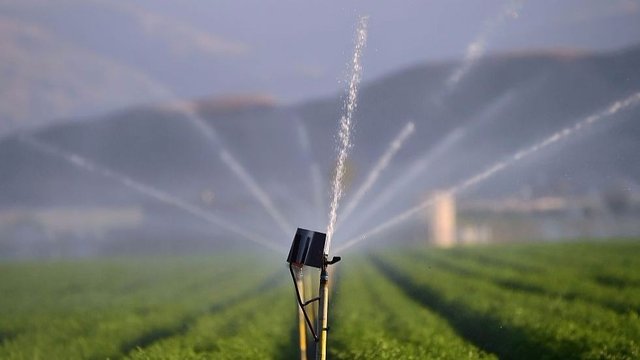The Hill: Farm bill farce: Corporate ag reports huge profits while farmers struggle to feed their families
by Darvin Bentlage, opinion contributor — 09/04/18
They are either out of touch or don’t care. This summer, the House and Senate passed different versions of the 2018 farm bill. Neither address what’s happening here, in farm country and rural America.
All the talk around the farm bill is about the differences in proposals for the Supplemental Nutrition Assistance Program, or SNAP — a conversation we need to have. But, there is little talk about why so many families in rural America, including farm families, need food stamps in the first place.
We have a bona fide farm crisis on our hands. According to the USDA, farm income has dropped for a fifth straight year, often below costs, and will be the lowest in 12 years. The farmer’s share of the overall food dollar is the lowest since the statistic started 25 years ago.
Prices are low: Corn and beans are at $3.15 and $8.27 a bushel respectively, virtually the same price as 1974. In the southern Midwest, we have a serious drought, the amount of quality hay is at catastrophic levels and producers are talking about selling off livestock. Farmers aren’t being paid, while corporate agribusinesses report huge profits. This has a cascading effect on rural America: When family farmers thrive, rural economies thrive — when family farms struggle, rural communities do too.
President Trump’s trade fights are sending prices even lower. The USDA says it will give a one-time direct payment to producers that have lost export markets and buy millions of dollars’ worth of excess commodities to donate to feeding programs. But these actions won’t fix the bad policies that have created our depressed rural economies.
For too long, our rural economies have struggled due to monopolized and globalized markets, low prices from overproduction and lack of supply management, and corporate concentrated animal feeding operations (CAFOs) putting family farmers out of business. Corporate lobbyists write the rules to support this system, while farm families and our communities suffer.
As a result, foreign corporations control huge swaths of our food production and farmland, putting our economy and national security at risk. For example, two foreign companies (China’s Smithfield and Brazil’s JBS) control 50 percent of U.S. pork production, the biggest beef packer is JBS, and Germany’s Bayer owns our biggest seed company, Monsanto.
Both versions of the farm bill continue the same pro-corporate policies that got us where we are and may make things worse. The House bill terminates a popular conservation program, the Conservation Stewardship Program, while opening loopholes for CAFOs to access conservation dollars.
The Senate’s maintains insurance programs that don’t cover multiple years of low prices and continues conservation and guaranteed loan programs that finance corporate factory farms and overproduction (depressing prices paid to independent producers and fueling further concentration).
It doesn’t have to be this way. A family farm system is the most effective means to provide safe and quality food, diversity of production, economic opportunity and preservation of our soil and water.
To restore and protect an independent family farm system of agriculture, Congress must pass a farm bill that addresses overproduction and the resulting low prices. Instead of focusing on aid payments and government purchasing to prevent short-term catastrophe, we need an approach that:
- Restores supply management programs, grain reserves and price floors through a federal non-recourse loan program at cost of production plus profit
- Prioritizes farm income from the sale of commodities at a fair price in open and competitive markets, rather than government subsidies
- Curbs the undue economic and political power of multinational agribusiness corporations that aim to replace independent family farms with industrial factory farms
- Enforces antitrust laws against corporate concentration and vertical integration in the food industry
- Bans meatpacker ownership of livestock and their use of captive supplies, which allows for overproduction and market manipulation
- Stops corporate factory farms from exploiting taxpayer-funded conservation programs like the Environmental Quality Incentives Program and instead funnel conservation dollars to family farms practicing real conservation.
- Stops factory farm corporations from exploiting the taxpayer-funded guaranteed loan program
We can and must do better — for farmers, rural communities, consumers and our country. Our elected representatives in Washington need to address what is happening “out here,” and not follow lock-step the policies written by corporations and lobbyists at the expense of our farms, families and communities.
Make policies that help us, not hurt us. It’s been far too long, and we’re watching.
Darvin Bentlage is a livestock and grain farmer in Barton County, Missouri.
Barb Kalbach, John Harter and Joel Penner contributed to this piece. Kalbach is a grain farmer from Dexter, Iowa. Harter is a livestock and grain farmer from Winner, South Dakota. Penner is a livestock and grain farmer from Butterfield, Minnesota.
